
Chinese Idiom 88
浑水摸鱼:
Meaning: Fish in troubled waters; take advantage of a confused situation.
Explanation: Refers to taking advantage of chaos or confusion to achieve one's goals.

Chinese Idiom 87
画龙点睛:
Meaning: Adding the finishing touch; bringing a piece of work to life.
Explanation: Describes the final, crucial detail that completes and perfects a work of art, likened to painting the eyes on a dragon to bring it to life.

Chinese Idiom 86
河东狮吼:
Meaning: The wife’s loud and fierce roar.
Explanation: Refers to a domineering wife, originating from a story about a man's wife who was known for her fierce temper.

Chinese Idiom 85
好逸恶劳:
Meaning: Love ease and hate work; lazy and unwilling to exert effort.
Explanation: Criticizes those who avoid work and seek only comfort and leisure.

Chinese Idiom 84
含辛茹苦:
Meaning: Endure all kinds of hardships and toil.
Explanation: Describes someone who has gone through significant suffering and difficulty, often for a greater cause or the benefit of others.

Chinese Idiom 83
改过自新:
Meaning: Correct one's mistakes and start anew.
Explanation: Encourages reform and self-improvement after recognising one's faults.

Chinese Idiom 82
风和日丽:
Meaning: Gentle breeze and beautiful sunshine; a fine and pleasant day.
Explanation: Describes idyllic weather, often used metaphorically to describe a peaceful and pleasant situation.

Chinese Idiom 81
放虎归山:
Meaning: Letting the tiger return to the mountain; letting a dangerous person go free.
Explanation: Warns against releasing a threat back into the world, where it can cause more harm later.

Chinese Idiom 80
东奔西走:
Meaning: Running around in all directions; busy and hectic.
Explanation: Describes a state of constant movement and busyness, often in pursuit of a goal.

Chinese Idiom 79
得意忘形:
Meaning: So elated that one forgets their manners.
Explanation: Warns against becoming so pleased with oneself that one behaves improperly or loses composure.

Chinese Idiom 78
长驱直入:
Meaning: Advance boldly and directly.
Explanation: Describes a forceful and unimpeded advance, often used in a military context but also applicable to any straightforward and decisive action.

Chinese Idiom 77
不耻下问:
Meaning: Not ashamed to ask and learn from one's subordinates or juniors.
Explanation: Encourages humility and the willingness to seek knowledge from others, regardless of their status.
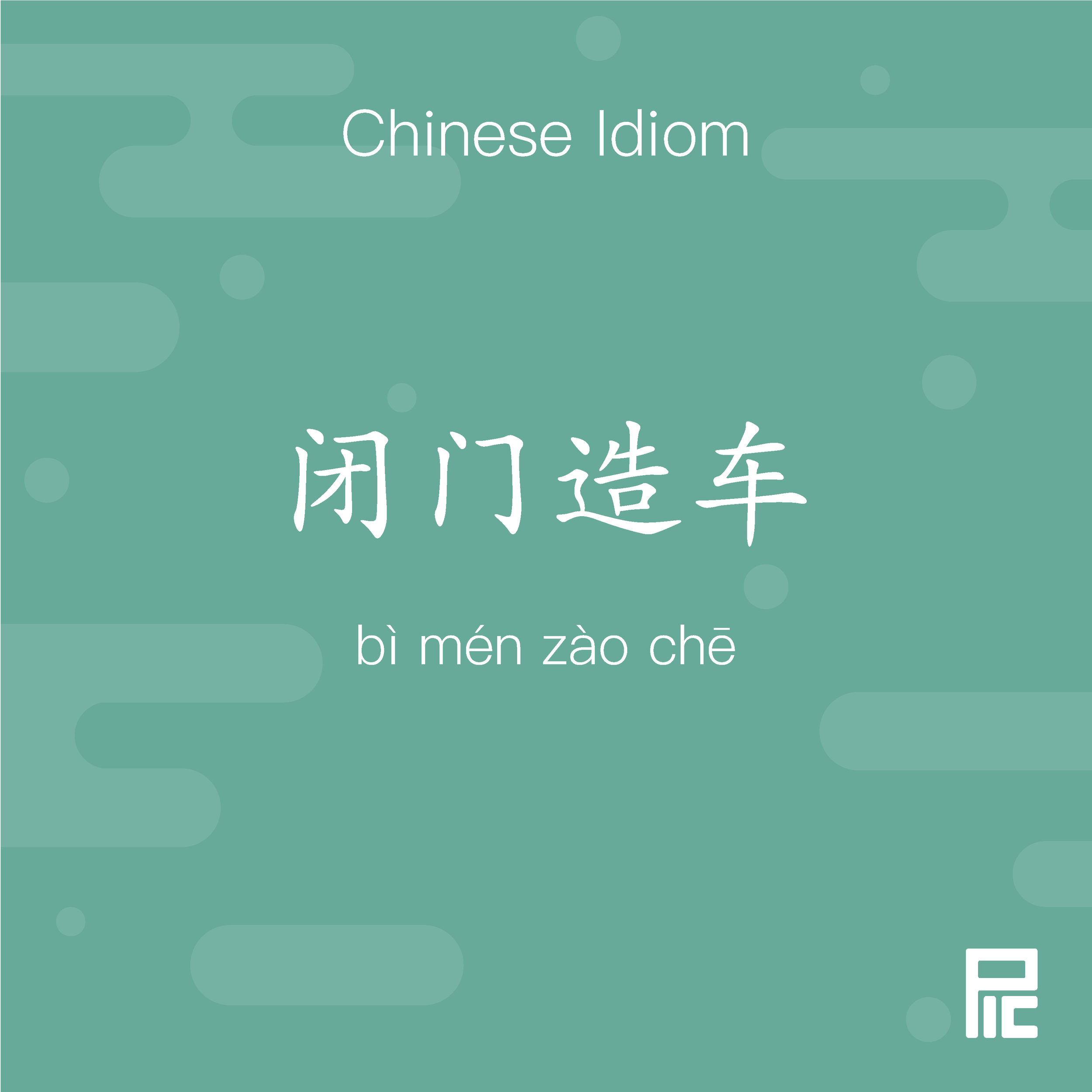
Chinese Idiom 76
闭门造车:
Meaning: Make a car behind closed doors; work in isolation from reality.
Explanation: This idiom warns against working in isolation without considering external circumstances, leading to impractical results.
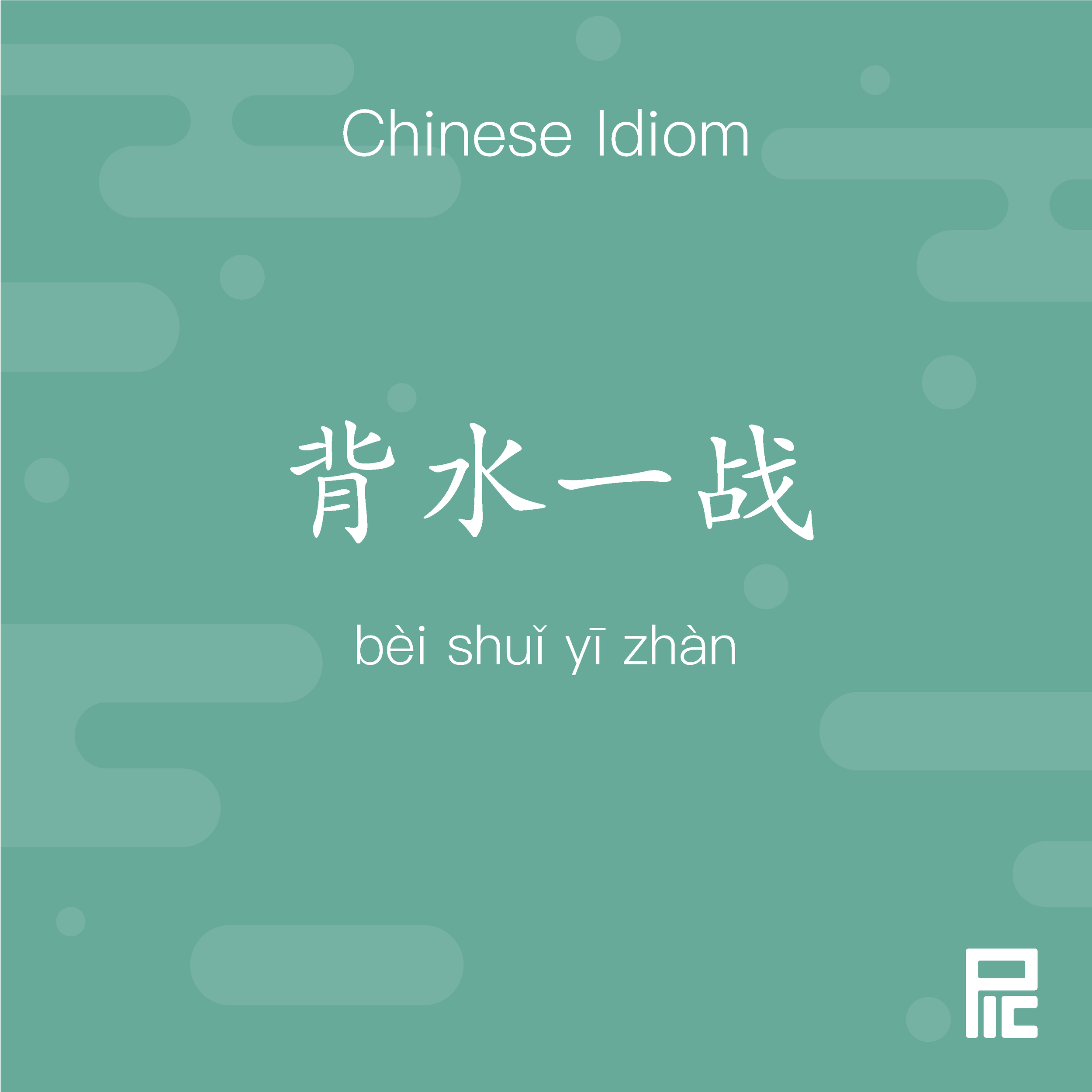
Chinese Idiom 75
背水一战:
Meaning: Fight with one's back to the river; fight to the death.
Explanation: Originating from a military strategy where soldiers had no retreat, it means to fight with determination and no option to retreat.
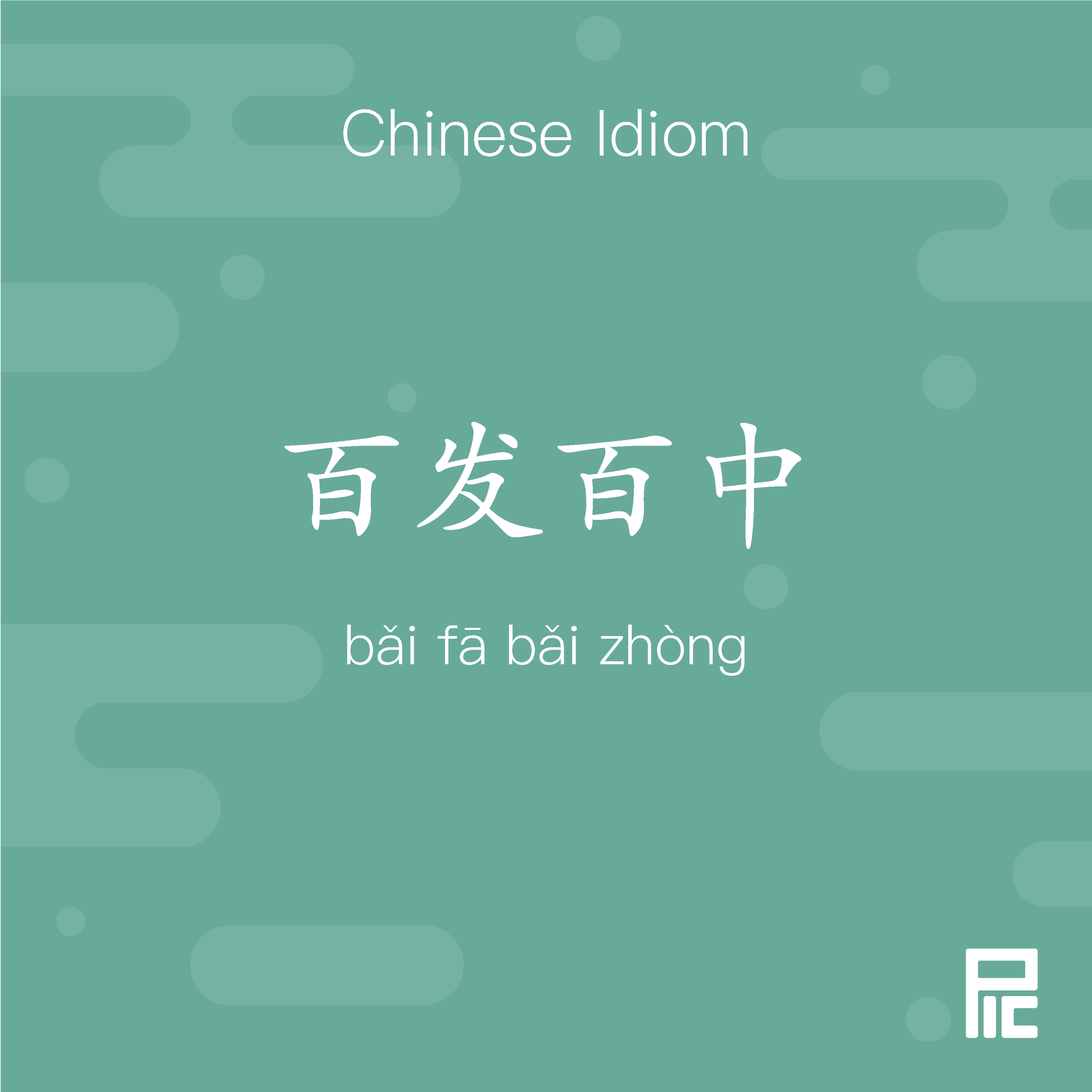
Chinese Idiom 74
百发百中:
Meaning: Always hit the target; consistently successful.
Explanation: Literally "hundred shots, hundred hits," it describes someone who is extremely accurate and successful in their endeavours.
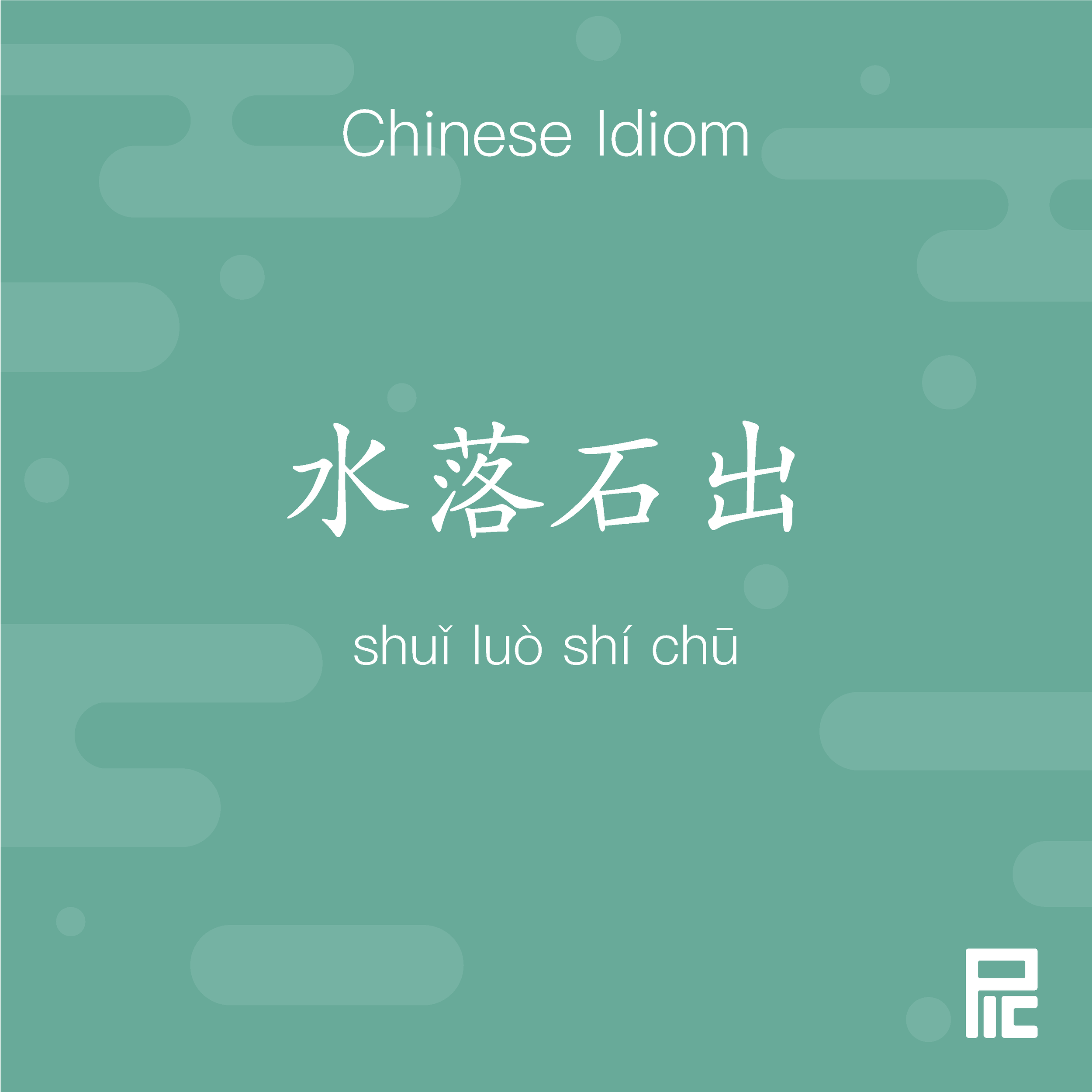
Chinese Idiom 73
水落石出:
Meaning: The truth will come to light eventually.
Explanation: Literally "when the water recedes, the rocks emerge," it means that hidden truths will be revealed in time.
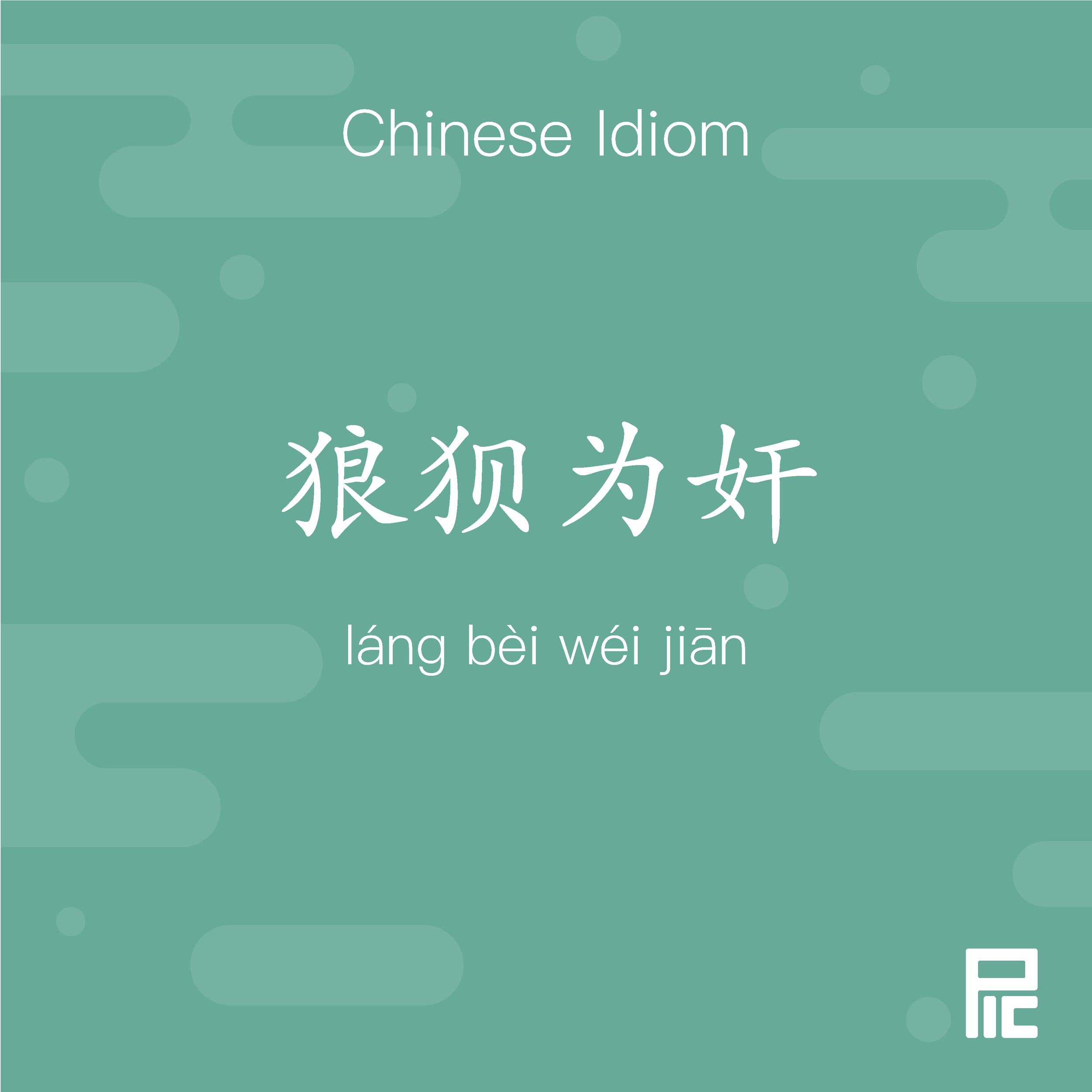
Chinese Idiom 72
狼狈为奸:
Meaning: Partnership between bad people to do bad things.
Explanation: Literally "jackals work together for evil," it describes the collusion of villains in committing misdeeds.
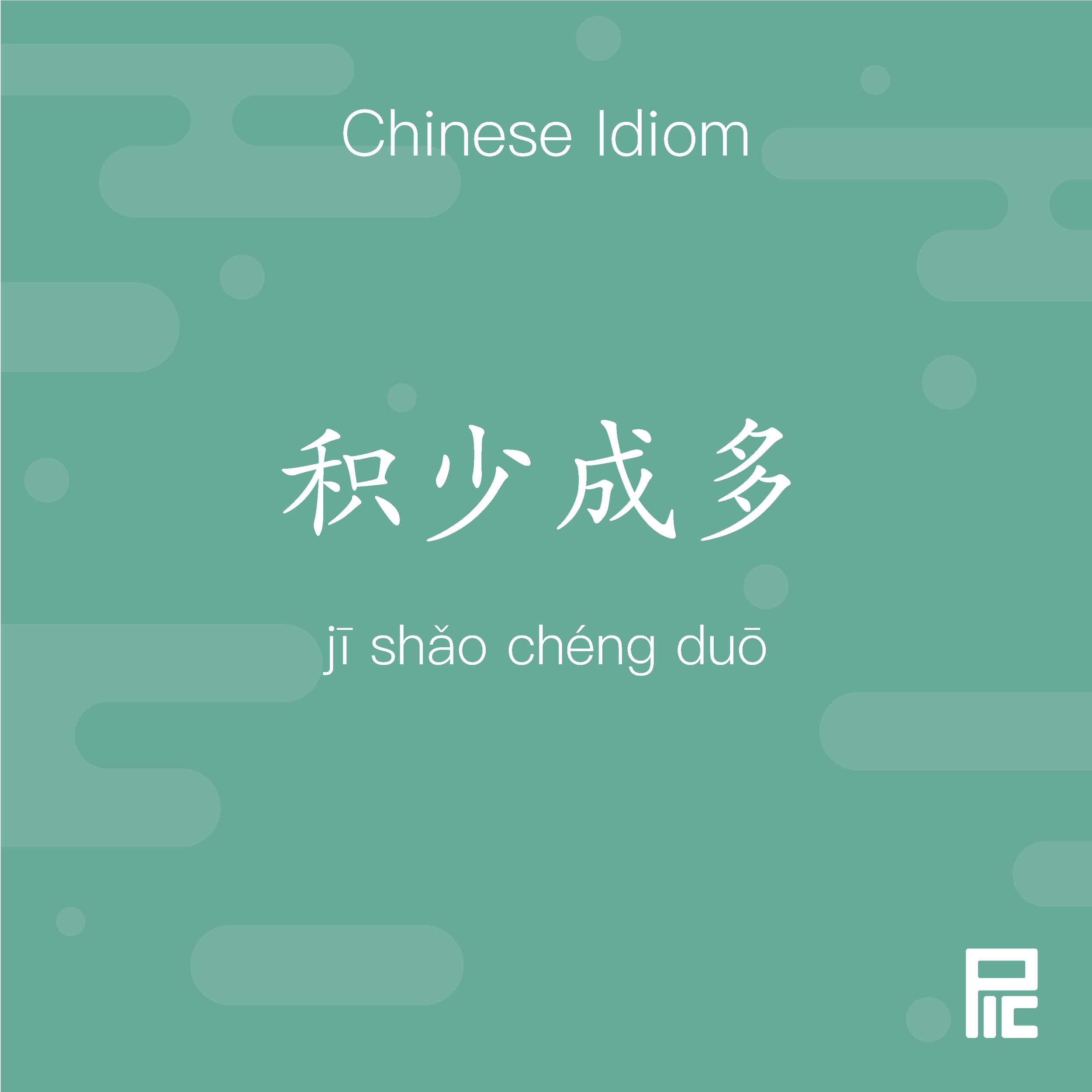
Chinese Idiom 71
积少成多:
Meaning: Small efforts over time can lead to significant results.
Explanation: Literally "accumulate little by little to become much," it encourages consistency and persistence in efforts.
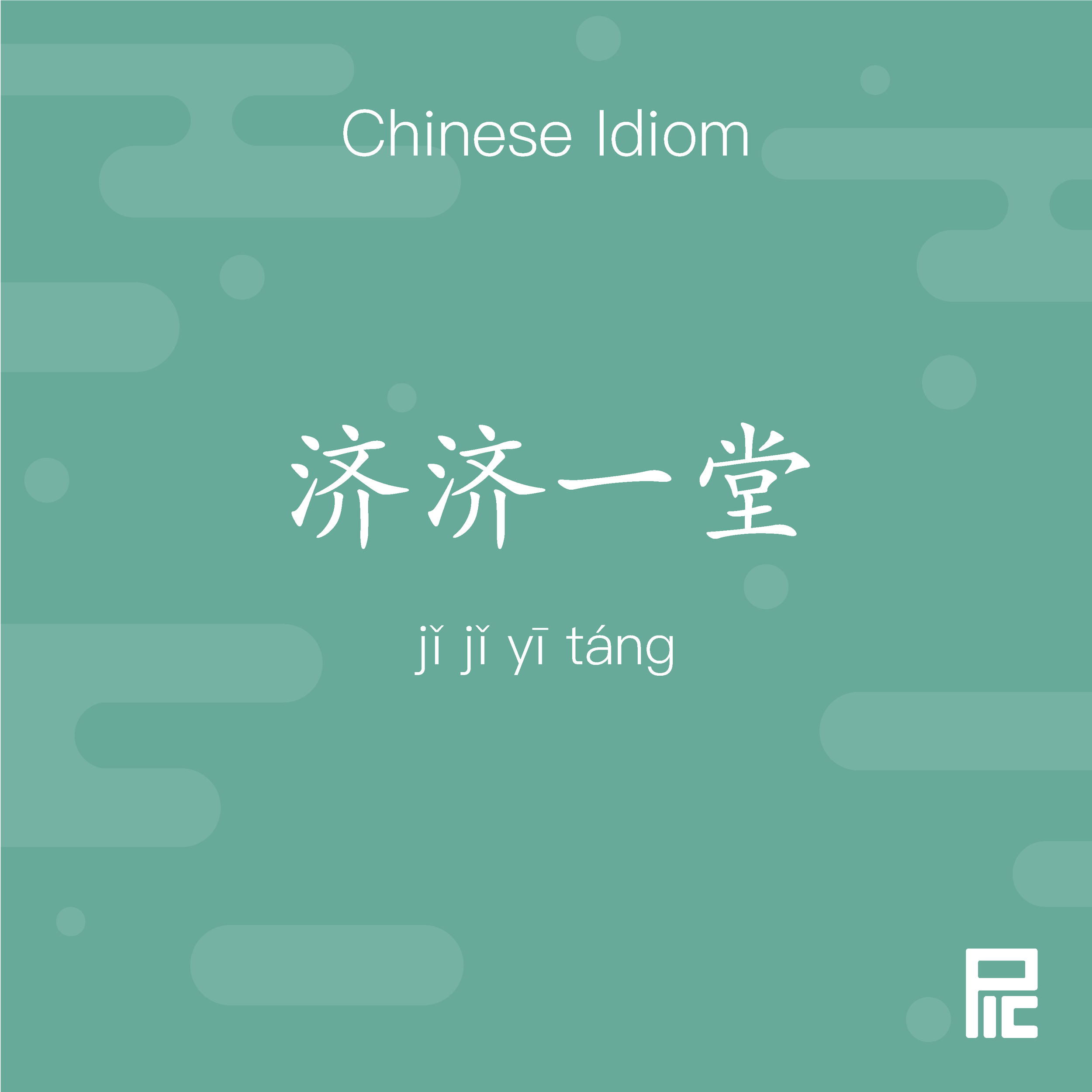
Chinese Idiom 70
济济一堂:
Meaning: A grand assembly or gathering of many distinguished individuals.
Explanation: Describes a scene where many talented and prominent people are gathered together in one place.

Chinese Idiom 69
虎头蛇尾:
Meaning: Starts strong but ends weakly or disappointingly.
Explanation: Literally "tiger's head, snake's tail," it describes efforts or projects that begin with great momentum but fail to sustain it.
